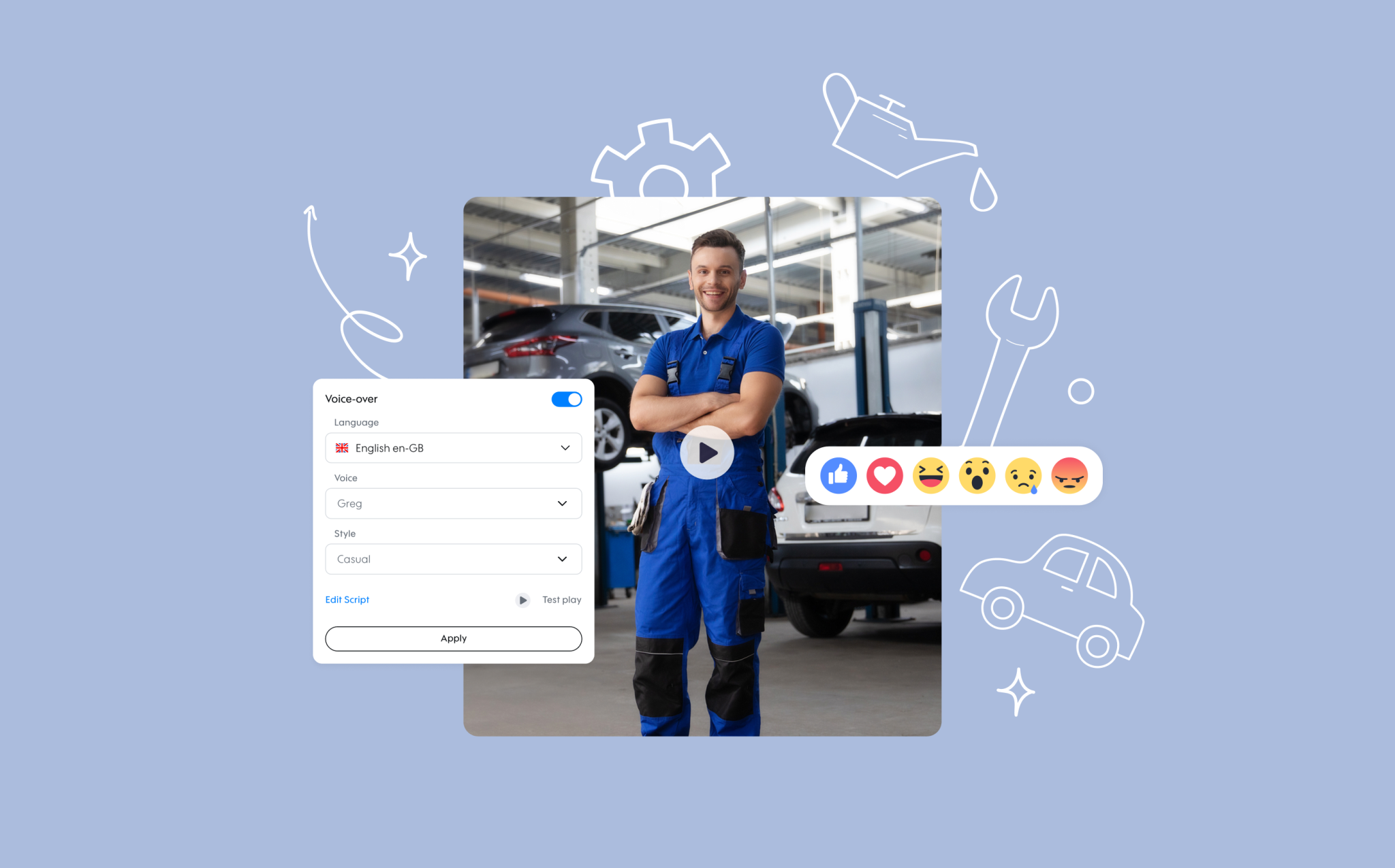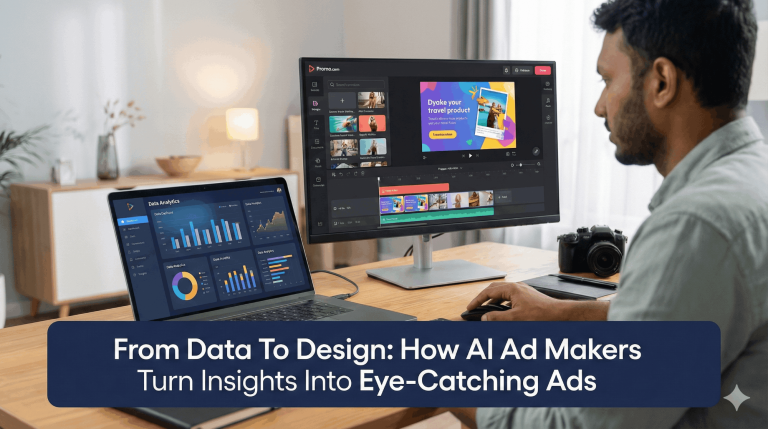
Shifting Gears to the Future: How AI Is Transforming Small Auto Businesses

- Blog
- Small Business Tips
- Shifting Gears to the Future: How AI Is Transforming Small Auto Businesses
The automotive industry is experiencing a technological revolution, with artificial intelligence (AI) at its core. For small and medium-sized businesses like car dealerships, auto repair shops, auto parts stores, and detailing and car Wash Services, AI is no longer just an optional tool but a transformative force reshaping how they operate, connect with customers, and drive profitability.
According to a recent survey by Fullpath, 81% of car dealerships plan to increase their AI budgets in 2025, with more than half anticipating double-digit growth. This highlights the industry’s growing commitment to leveraging AI to enhance customer experiences, streamline operations, and maintain competitiveness. Nearly all dealerships using AI reported revenue growth, with 37% seeing increases of 20%-30%.
For car dealerships, AI offers solutions ranging from personalized customer interactions and optimized inventory management to fraud detection and predictive maintenance. Repair shops, parts retailers, and detailing services also benefit from AI through predictive diagnostics, workflow automation, and tailored service recommendations.
With AI no longer an optional tool but a competitive necessity, this blog explores AI’s endless opportunities to innovate and thrive for automotive businesses.
The Rise of AI in the Automotive Landscape
In its early days, AI was used primarily for enhancing manufacturing efficiency and vehicle diagnostics. These applications laid the groundwork for more sophisticated uses as the technology evolved.
Later, the 2000s marked significant milestones in AI adoption, particularly with the development of advanced driver assistance systems (ADAS) like adaptive cruise control and lane departure warnings. These systems revolutionized safety and prepared the industry for autonomous driving projects, such as Waymo’s self-driving cars.
Today, AI is a critical enabler for small and medium-sized automotive businesses. Dealerships use AI for predictive maintenance, fraud detection, and customer relationship management (CRM). 61% of dealerships currently use AI for CRM, streamlining customer interactions and increasing retention. Predictive maintenance is also gaining traction, with 26% of dealerships currently using it and 34% planning implementation by 2025.
Key Applications of AI for Small Automotive Businesses
With AI now available even to smaller businesses with fewer resources, it’s important to be aware of the various tools out there that can drive growth, streamline operations, and enhance customer service. From car dealerships to repair shops and detailing services, AI has applications tailored to meet diverse needs. Here are the key areas where AI can make a significant impact.
Predictive Maintenance and Diagnostics
For repair shops and service centers, predictive maintenance has become a game-changer. AI analyzes vast datasets, such as vehicle history and performance metrics, to identify potential issues before they occur. This proactive approach reduces costly breakdowns and improves repair accuracy, saving both time and money. Predictive maintenance systems also enable service centers to schedule repairs more efficiently, minimizing vehicle downtime and enhancing customer satisfaction.
Recommended Tools: Mitchell 1 provides diagnostic insights tailored for repair shops, while Dynamo AI focuses on technician efficiency.
Inventory Management and Demand Forecasting
Managing inventory is a challenge for small automotive businesses, particularly for dealerships and parts stores that need to balance fluctuating customer demand. AI simplifies this process by analyzing historical sales data, seasonal trends, and market conditions to predict future demand. By optimizing stock levels, businesses can avoid overstocking or stockouts, reducing costs and improving customer satisfaction. Whether ensuring a dealership has the most sought-after models or a parts store is stocked with high-demand items, AI ensures the right products are available at the right time.
Recommended Tools: PartsTech streamlines parts inventory management, and StockIQ offers advanced forecasting solutions for auto businesses.
AI-Enhanced Marketing and Social Media
Social media is a critical channel for automotive businesses to connect with potential customers and maintain engagement with existing ones. AI tools can revolutionize social media marketing by automating the creation and scheduling of posts, analyzing audience preferences, and optimizing ad performance. These technologies ensure that social media campaigns are not only consistent but also highly targeted, saving time and maximizing ROI.
For car dealerships, AI-powered social media marketing can highlight inventory with dynamic ads tailored to customer preferences, showcasing vehicles that align with past browsing behavior or location data. Repair shops and auto parts retailers can leverage AI to create engaging how-to videos, promotions, and informative content that resonates with their audience. These posts can also be scheduled strategically to maximize visibility during peak engagement times.
Using AI-driven insights, businesses can refine their messaging to reach the right demographics with content that appeals directly to their interests. This is especially important as consumer attention spans dwindle, and the need for precise, impactful marketing grows.
Recommended Tools: PromoAI excels at creating and scheduling engaging social media content specifically tailored for automotive businesses.
Customer Service Automation and Personalization
Often, one way that smaller automotive businesses can differentiate themselves from larger competitors is with exceptional customer service. AI can elevate the customer experience by automating interactions and personalizing services. For car dealerships, AI-powered chatbots and virtual assistants can engage potential buyers 24/7, answering questions about vehicle features, financing options, and availability. These tools can also handle inquiries about trade-ins, warranty details, and scheduled test drives, ensuring that customers receive quick, accurate responses without requiring human intervention at every step.
For auto repair shops, AI can streamline service scheduling and provide automated reminders for upcoming appointments or overdue maintenance. AI-driven systems can send personalized messages based on a vehicle’s service history, such as reminders for oil changes or tire rotations, which helps retain customers and ensures consistent revenue.
Auto parts retailers can use AI to recommend complementary products during online purchases or even in-store interactions. For instance, if a customer buys brake pads, an AI system can suggest related products, such as brake fluid or installation tools, enhancing the shopping experience and increasing average order value.
These automated systems not only improve customer satisfaction by delivering timely, personalized support but also free up staff to focus on more complex, value-added tasks like closing sales or resolving unique customer issues.
Recommended Tools: Drift and Zendesk offer AI-powered chat support with automotive-specific customization options to deliver seamless customer experiences. Service-oriented platforms like Xtime specialize in appointment scheduling and service reminders tailored to repair shops and dealerships.
AI-Driven Pricing Optimization
Competitive pricing is crucial in the automotive industry, particularly for dealerships and parts retailers. AI-powered pricing tools analyze market trends, competitor rates, and customer demand to dynamically adjust prices. This ensures businesses remain competitive while maximizing profitability. Dealerships can use these tools to optimize trade-in offers and financing options, while parts stores can implement dynamic pricing for high-demand items.
Recommended Tools: Prisync specializes in competitive pricing analysis, helping businesses stay ahead in their market.
Vehicle Image Enhancement and Digital Showrooms
The online car-buying journey often starts with a dealership’s vehicle display pages. AI-driven tools can enhance these listings by improving image quality, generating 360-degree views, and creating virtual showrooms. These technologies allow customers to explore vehicles online, creating an immersive shopping experience. By offering studio-quality visuals and interactive features, dealerships can increase engagement and drive sales.
Recommended Tools: Impel provides AI-driven imaging solutions for dealerships.
Workflow Automation for Auto Detailing and Car Wash Services
High-volume services like car washes and detailing benefit significantly from workflow automation. AI-powered tools streamline appointment scheduling, payment processing, and customer follow-ups, ensuring smooth operations. By automating routine tasks, businesses can focus more on delivering exceptional customer service, increasing efficiency, and handling higher volumes with ease.
Recommended Tools: Brooke.ai is ideal for scheduling and appointment management, while Square provides automated payment solutions and customer communication tools.
AI for Customer Retention and Loyalty Programs
Retaining customers is more cost-effective than acquiring new ones, and AI helps smaller businesses create loyalty programs that deliver value. By analyzing customer behavior, AI tools can recommend targeted promotions, predict service needs, and provide personalized rewards. For instance, a repair shop can send timely reminders for routine maintenance or offer discounts based on a customer’s service history, building long-term loyalty.
Recommended Tools: AutoTechIQ provides insights for customer retention and loyalty program management.
Best Practices for Implementing AI in the Automotive Industry
As AI continues to revolutionize the automotive industry, it’s important to integrate these technologies thoughtfully to maximize their potential while ensuring smooth operations. A strategic approach to AI adoption can help you minimize disruptions and fully realize its benefits. Here are some best practices to guide small automotive businesses in implementing AI.
Start with Data-Driven Goals
Before implementing AI, it’s essential to identify clear, measurable objectives rooted in data. Whether your focus is on improving inventory management, streamlining customer service, or boosting marketing efficiency, defining your goals ensures that your AI initiatives align with your business needs.
Tip: Analyze your current processes to identify bottlenecks or areas for improvement where AI could make the most impact. Use this analysis to set specific goals, such as reducing service turnaround times or increasing customer retention rates.
Combine AI with Human Expertise
While AI excels at automating tasks and analyzing data, human expertise is still irreplaceable, especially in customer interactions and complex decision-making.
Tip: Use AI to handle repetitive tasks and data analysis, freeing up your team to focus on high-value activities, such as customer relationship building and strategic planning. For example, let AI handle initial diagnostics, but rely on technicians to provide the final recommendations and repairs.
Ensure Data Security and Privacy
AI systems rely on data, making data security and privacy critical considerations. Customers trust automotive businesses with sensitive information, and mishandling this data can lead to reputational damage or legal consequences.
Tip: Choose AI tools with robust encryption and compliance with data protection regulations like GDPR or CCPA. Regularly review your data-handling practices to ensure that customer information is stored and used securely.
Invest in Staff Training
AI tools are only as effective as the people using them. Ensuring that your team understands how to operate AI systems and interpret their insights is crucial for success.
Tip: Provide hands-on training sessions and workshops to familiarize employees with AI tools. For example, train your marketing team to use AI-driven platforms for creating and analyzing campaigns or teach service staff to use AI-enhanced diagnostic tools for better customer service.
The Future of AI in the Automotive Industry
When it comes to AI, this is only the beginning. Let’s take a look at how emerging technologies, such as augmented reality (AR) and remote diagnostics, are going to further shape the future of customer engagement and operational efficiency for automotive businesses.
For car dealerships, AR-powered virtual showrooms could allow customers to explore vehicle models from the comfort of their homes, creating an immersive and interactive car-buying experience. Auto repair shops, on the other hand, may soon leverage remote diagnostic tools to troubleshoot issues without requiring vehicles to be brought in, reducing time and improving customer convenience.
Looking ahead, AI’s potential extends beyond current applications into areas like sustainability and hyper-personalization. As environmental concerns grow, AI can help small and medium-sized automotive businesses align with eco-friendly practices by optimizing parts inventory for lower emissions or recommending sustainable vehicle components to customers. Additionally, AI-powered systems could revolutionize the car-buying experience by tailoring every step of the process—matching customers with ideal financing plans, suggesting personalized add-ons, and even providing real-time trade-in evaluations based on advanced analytics.
By staying attuned to these advancements, small and medium-sized businesses in the automotive sector can position themselves as leaders in innovation, delivering cutting-edge solutions that meet evolving customer expectations while driving business growth. The future of AI in the automotive industry is bright, and the businesses that embrace these technologies early will gain a competitive edge.
Get Started with AI
With 95% of dealerships believing that AI is crucial to their future success, it’s clear that AI is no longer a luxury—it’s a necessity for businesses of all sizes in the automotive industry. From predictive maintenance to hyper-personalized marketing, AI empowers businesses to streamline operations, enhance customer experiences, and drive revenue growth. By integrating AI thoughtfully, small and medium-sized businesses can not only keep pace with the competition but also set themselves apart as industry leaders.
Ready to take your automotive marketing to the next level? Try PromoAI to create, schedule, and optimize your social media marketing campaigns, connecting with customers across social platforms seamlessly.
Meet PromoAI
Generate a month worth of video content for your business in just one click!
About the author
Daisy Rogozinsky
Daisy Rogozinsky loves to use the written word to educate, entertain, and tell stories. If she's not writing content, she's writing poetry, music, and screenplays.


